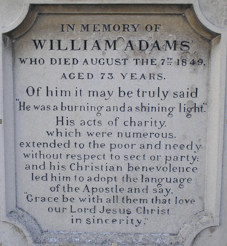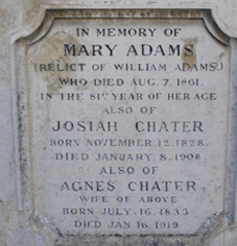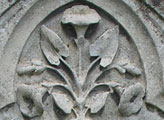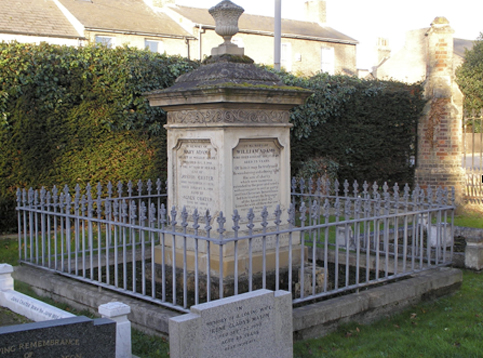William Adams 1776–1849
On the morning of Tuesday 14th August 1849, a funeral procession left the town and made its way to the ‘new’ Cemetery at Histon Road. Many shops along the route closed and staff watched respectfully whilst the procession passed. Hundreds of mourners, both rich and poor, made their way up Castle Hill and along the Histon Road in order to attend the interment. The deceased was clearly held in the highest regard.
Monument listed in Royal Commission on Historical Monuments 1958.
William Adams was born at Haverhill in 1776. His father was a weaver and he would most likely have gone into the same trade, were it not for the intervention of relatives who spotted his potential. One ran a school in Chesterton to which William was sent, beginning his long association with the Cambridge area. Another distant relative, Mr Simpson, then took William on as a junior in his drapers business where he thrived, soon becoming a partner and a wealthy man. He married Mary, the daughter of the family, and they settled into a comfortable home in Trumpington Street.
It was the way in which William chose to use his wealth that explains the respect in which he was held. From childhood he was deeply influenced by lay preachers and became a committed Christian and churchgoer. In 1806 he joined the Baptist Church, attending St Andrew’s Street Chapel. From this time he would regularly teach in Sunday Schools in the villages around Cambridge and as he became able, he used his wealth to build small meeting places where there were none. Institutions and individuals benefited from his support, both financial and spiritual. In 1829 he retired to spend his remaining twenty years leading what the Baptist Magazine would describe as ‘a life of distinguished Christian excellence’. With no children of his own, he generously supported the younger members of his extended family but used most of his income to aid the work of the Baptist Church and to alleviate poverty. He was a substantial subscriber when the Cemetery was established. In his Will he left the large sum of £5000 in small bequests to the charities he had supported during his life. He lived modestly and sought no recognition of his benevolence. Many of those who had benefited from his support and generosity must have been in the crowds that day.


Sources:
The Baptist Magazine, December 1849. Cambridge Independent Press, August 1849. Victorian Cambridge – Josiah Chater Diaries – Enid Porter, 1975

